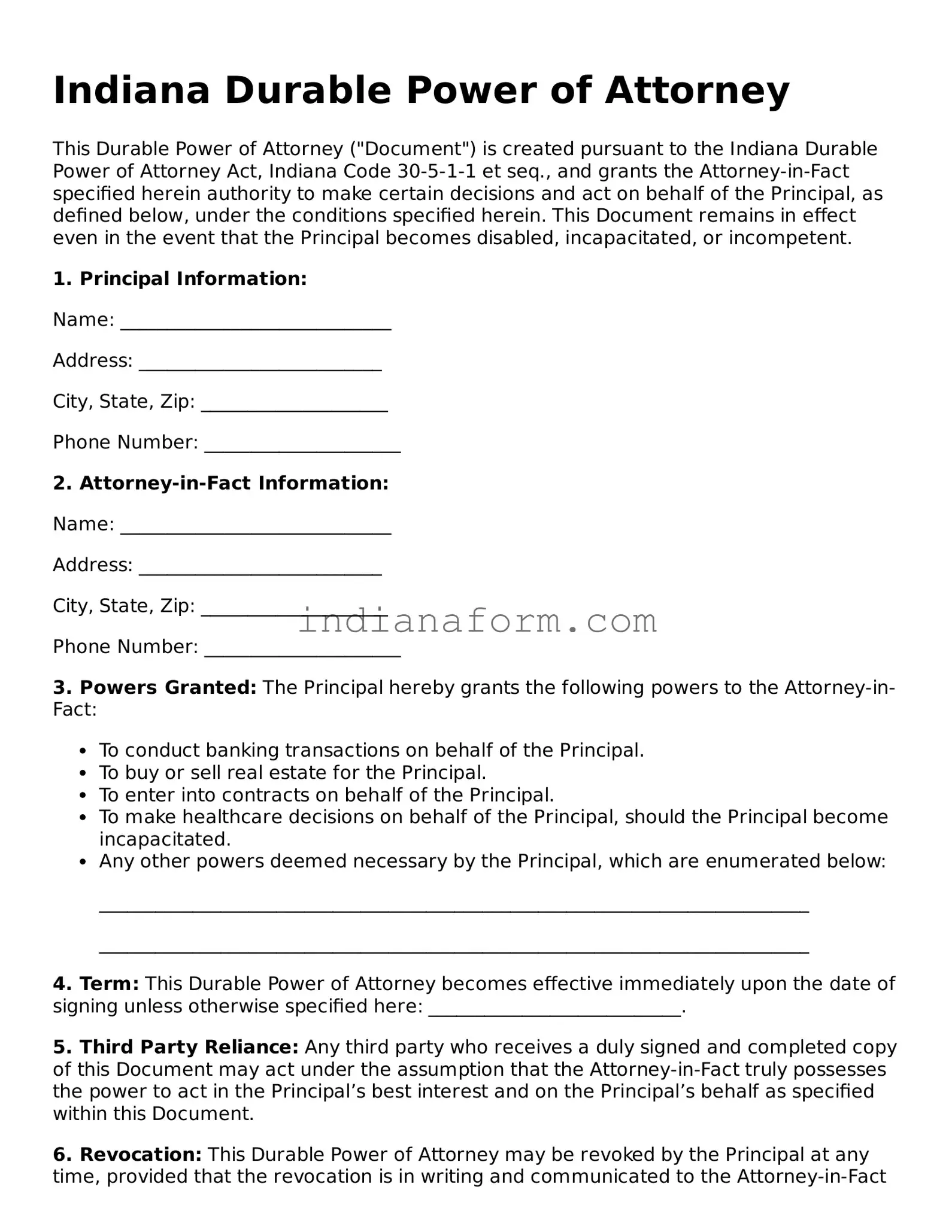Indiana Durable Power of Attorney
This Durable Power of Attorney ("Document") is created pursuant to the Indiana Durable Power of Attorney Act, Indiana Code 30-5-1-1 et seq., and grants the Attorney-in-Fact specified herein authority to make certain decisions and act on behalf of the Principal, as defined below, under the conditions specified herein. This Document remains in effect even in the event that the Principal becomes disabled, incapacitated, or incompetent.
1. Principal Information:
Name: _____________________________
Address: __________________________
City, State, Zip: ____________________
Phone Number: _____________________
2. Attorney-in-Fact Information:
Name: _____________________________
Address: __________________________
City, State, Zip: ____________________
Phone Number: _____________________
3. Powers Granted: The Principal hereby grants the following powers to the Attorney-in-Fact:
- To conduct banking transactions on behalf of the Principal.
- To buy or sell real estate for the Principal.
- To enter into contracts on behalf of the Principal.
- To make healthcare decisions on behalf of the Principal, should the Principal become incapacitated.
- Any other powers deemed necessary by the Principal, which are enumerated below:
____________________________________________________________________________
____________________________________________________________________________
4. Term: This Durable Power of Attorney becomes effective immediately upon the date of signing unless otherwise specified here: ___________________________.
5. Third Party Reliance: Any third party who receives a duly signed and completed copy of this Document may act under the assumption that the Attorney-in-Fact truly possesses the power to act in the Principal’s best interest and on the Principal’s behalf as specified within this Document.
6. Revocation: This Durable Power of Attorney may be revoked by the Principal at any time, provided that the revocation is in writing and communicated to the Attorney-in-Fact and to any third parties who have, or may have, relied on this Document.
7. Signature:
This Document must be signed by the Principal in the presence of a Notary Public or two (2) adult witnesses, neither of whom is the Attorney-in-Fact, to be legally effective and enforceable.
Principal's Signature: ________________________ Date: ____________
Attorney-in-Fact's Signature: __________________ Date: ____________
Witness #1 Signature: ________________________ Date: ____________
Witness #2 Signature: ________________________ Date: ____________
Notary Public's Acknowledgment:
This document was acknowledged before me on (date) _______________ by (name of Principal) ___________________.
Notary Public Signature: ____________________________
Commission expires: ___________________

